
How to Prune Forsythia: Tips for Timing and Technique
Published: 24/10/2024 | Updated: 24/10/2024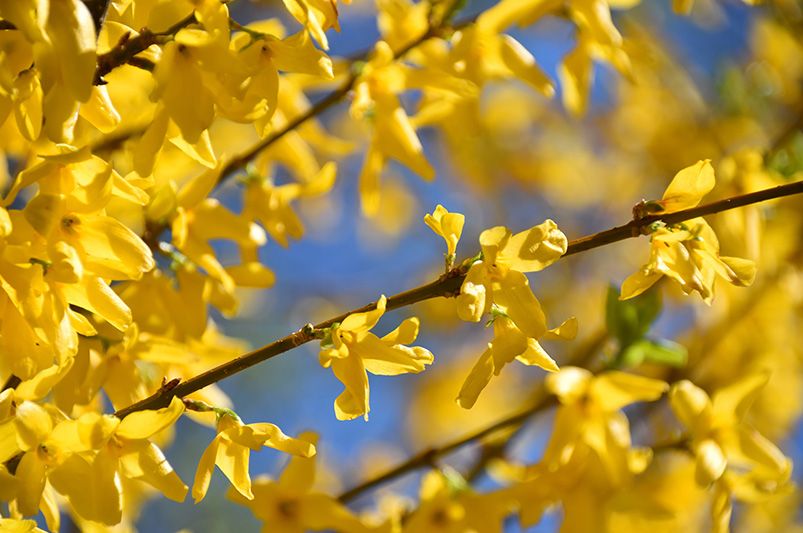
Key Highlights
- Pruning your forsythia at the right time ensures vibrant blooms year after year.
- Late winter to early spring, after flowering, is the ideal time to prune.
- Always use clean, sharp tools like bypass pruners or loppers.
- Removing dead, diseased, or crowded branches promotes healthy growth.
- Rejuvenate overgrown forsythia by cutting back hard to the ground level.
Introduction
Forsythia bushes are a happy sign that spring is here. Their bright yellow flowers bloom on bare branches, adding color to gardens. They do not need much care, but pruning is important to keep them healthy and looking good. This helps ensure that they have a lovely display of flowers every year.


It’s important to know when and how to prune these fast-growing shrubs. This guide will help you understand the details of forsythia pruning. You will learn the skills you need to keep your forsythia strong and thriving.
Understanding Forsythia Pruning
Pruning may look difficult, but with forsythia, it is about helping the shrub grow naturally rather than changing its shape a lot.
When you carefully trim some branches, you promote new shoots. This makes the plant bushier and increases the number of flowers. Pruning is also key to keeping the plant healthy.
The Importance of Pruning Forsythia
Pruning is important for more than just looks. It is key to the health of the plant. Here are some reasons to prune your plants:
First, pruning helps new growth. By cutting away older branches, you allow new shoots to thrive. This leads to stronger and more vigorous shrubs.
Second, pruning improves the look of your shrub. Forsythia can get thick and messy with time. This can make it look unappealing. Pruning helps maintain a nice shape, whether you want a natural look or a formal hedge.
Finally, pruning is necessary for good flowering. Forsythia blooms on old wood. This means flowers grow on branches from the previous year. Pruning at the right time helps you keep the branches that will create flowers in the spring.
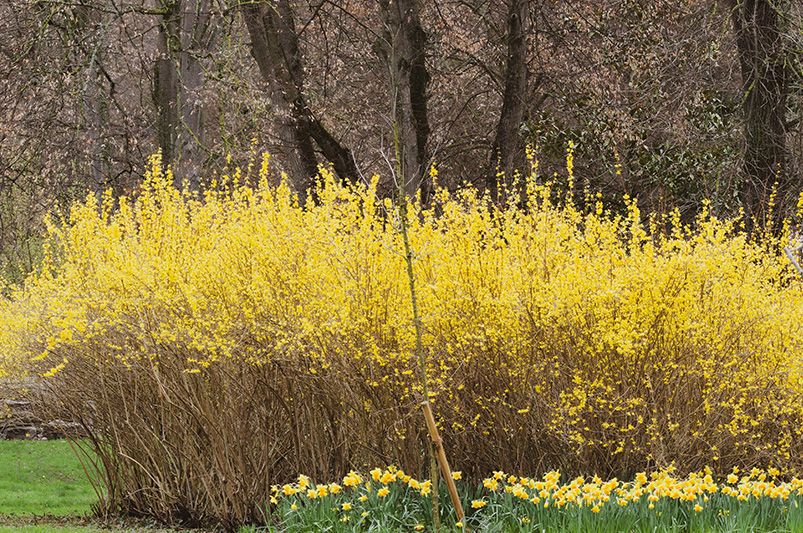
Best Time of Year for Pruning
Knowing the best time to prune is crucial for a thriving forsythia, and the timing can significantly impact its flowering potential.
|
Season |
Pruning Outcome |
|
Late Winter |
Ideal for rejuvenation pruning; plant is dormant, making it easier to see the branch structure. |
|
Early Spring |
Best time for regular pruning; after flowering, but before new growth emerges. |
|
Summer/Fall |
Avoid pruning; may remove potential flower buds for next year. |
Pruning after the shrub has bloomed in early spring allows the plant to focus its energy on new growth for the season, rather than flower production. It's best to complete the pruning before new buds appear and certainly before late spring.
A Beginner’s Guide to Pruning Forsythia
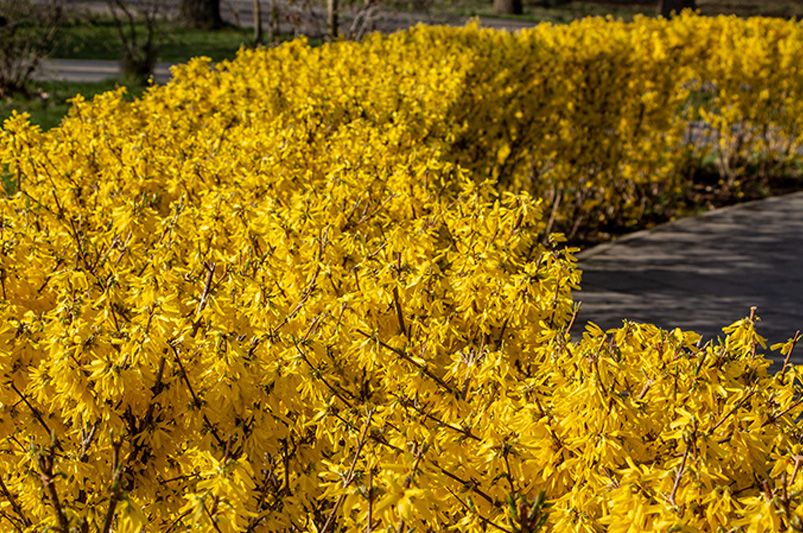
Pruning a forsythia may look hard, but it is easy with some simple steps. Even beginners can learn how to shape this bright shrub.
Let’s divide the task into simple steps to make it clear and easy to do.
Step 1: Inspect the Plant
Before you start using your pruning shears, take time to look at your forsythia plants. Check how healthy they are. Watch for damage, disease, or dead branches.
Also, look for branches that cross each other or places where growth is thick. This first check helps you see what needs work and helps you decide how to prune your forsythia plants.
Step 2: Remove Dead or Diseased Branches
Dead or diseased branches make a plant look bad. They can also attract pests and diseases that harm the plant. The first step in pruning is to remove these branches.
Use your pruning shears or loppers. Make sure they are clean and sharp for a good cut. Cut dead branches all the way back to the base. If a branch is sick, cut it back to healthy wood.
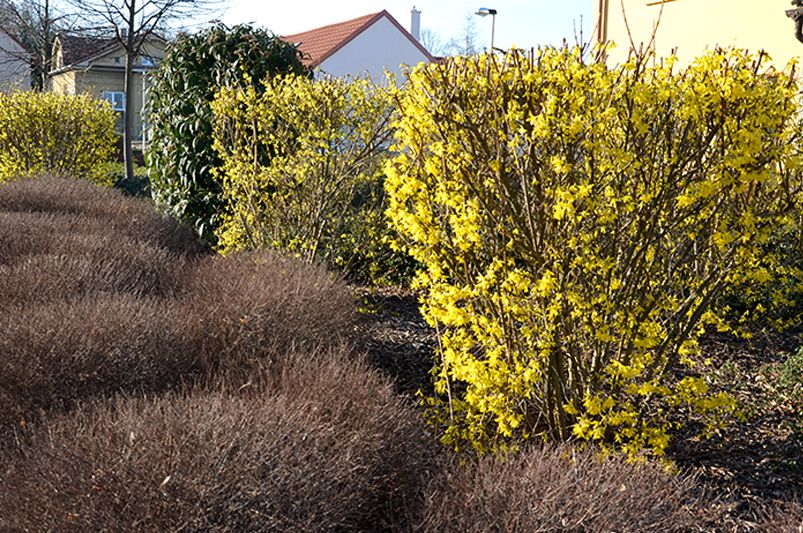
Step 3: Thin Out Crowded Areas
Forsythia needs good airflow. This helps avoid fungus and supports healthy new shoots. Here’s how to thin out crowded spots:
- Look for parts where the forsythia grows too thick.
- Choose a few older or overlapping branches to remove. Cut them back to the base or to a healthy side branch.
- Try to open the center of the shrub. This lets light and air in.
- Thinning encourages new growth from the base, making the plant fuller and healthier.
Step 4: Shape the Forsythia
Forsythia has a natural, good-looking shape with a nice arch. You can make its shape even better by pruning it. Think about how you want the look of your shrub. Would you like a neat hedge, a bushy shrub, or a more artistic form?
If you want a forsythia hedge, you should trim it regularly to help it grow thick. Use hedge trimmers or shears to keep the height and shape you want.
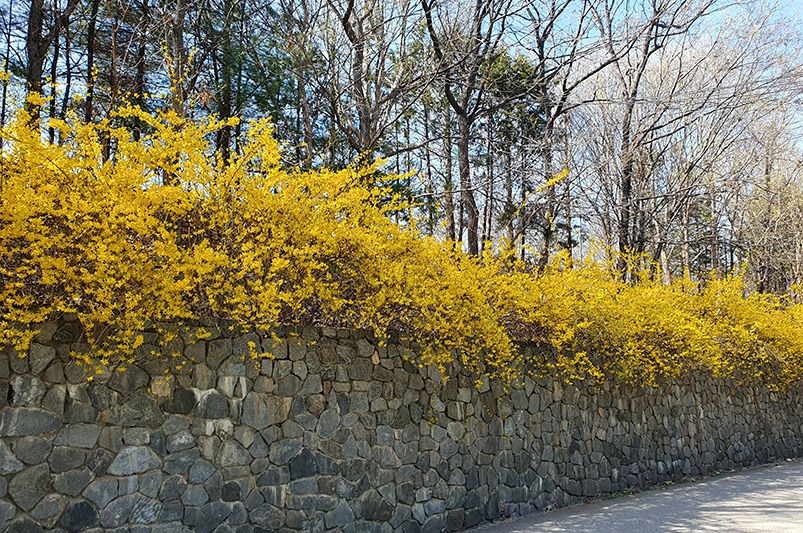
Conclusion
To successfully prune Forsythia plants, timing and technique are very important. When you learn about pruning and follow a simple guide, you can make your Forsythia plants healthier and more beautiful. Regularly check your plants, cut off dead branches, thin out crowded spots, and shape the plant. These are all key steps for the best growth. Keep in mind that pruning too late can hurt the blooms for next year, so make sure to stick to your schedule. For more information and answers to common questions, check our FAQ section. Feel free to share what you’ve learned on social media to help others improve their pruning of Forsythia.
Frequently Asked Questions
How often should forsythia be pruned?
Forsythia bushes need pruning once a year. This helps keep their shape, allows for new growth, and encourages lots of blooms. The best time to do this pruning is in early spring, right after the flowers have faded.
Can I prune forsythia in the fall?
It's best to avoid pruning your forsythia in the fall. If you prune then, you will remove the flower buds that are already there for next year. This will lead to fewer blooms in the spring. Try to prune it in late winter or early spring for better results.
What happens if you prune forsythia too late?
If you prune forsythia too late in the season, it can lower the number of flowers for next year. You would be cutting off the stems that would have held flowers in the spring. It’s best to prune before the new growth appears.
How do I rejuvenate an old forsythia bush?
Overgrown forsythia can gain a lot from rejuvenation pruning. You should do hard pruning by cutting back the oldest stems to around 6-12 inches above ground level. This should be done in late winter. With this method, you can encourage vigorous shrubs, leading to new growth and easier maintenance.
Can forsythia be pruned into a tree form?
Forsythia usually grows as a shrub with many stems. However, you can change some types into tree shapes by carefully pruning. Pick a plant that has a strong central stem. Slowly cut away the lower branches. This way, you can shape the remaining main stems into the tree form you want.
Need Assistance for a Complete Landscape Makeover?
Shrubhub’s landscape design packages can significantly transform the lives of homeowners by delivering customized, professional landscaping plans tailored to their unique space and personal style. With the ease of online collaboration, you are guided step-by-step through a design process that fundamentally reshapes your outdoor environment. The result is an aesthetically pleasing and functional outdoor living area that maximizes the potential of your property.


